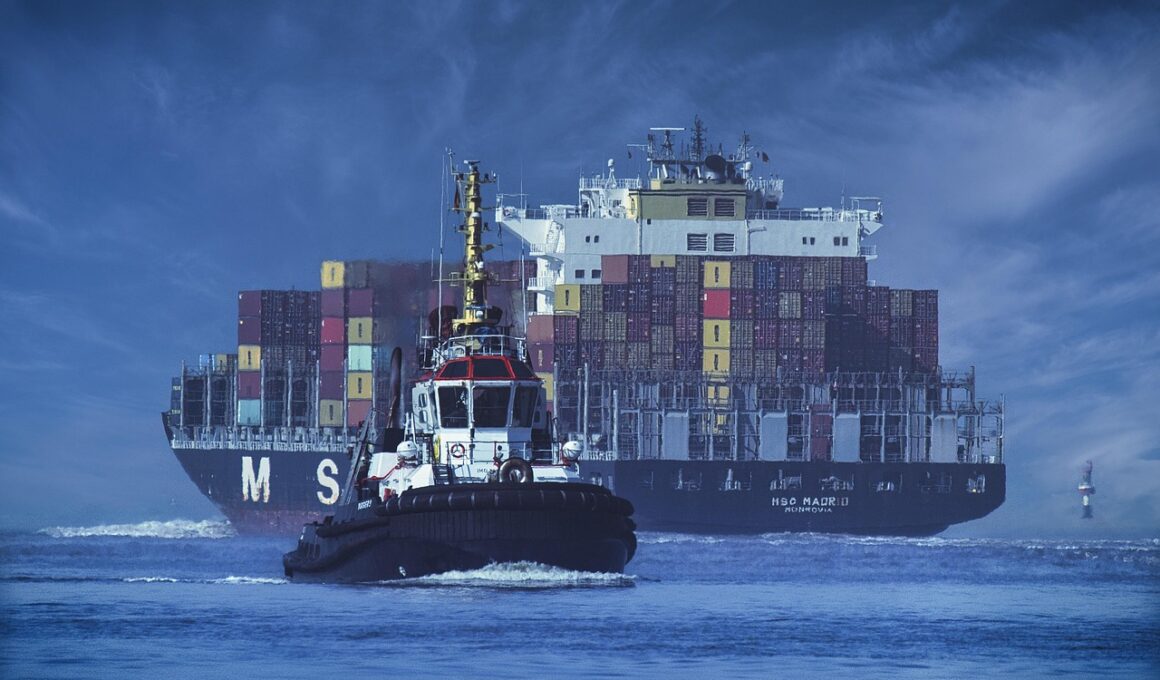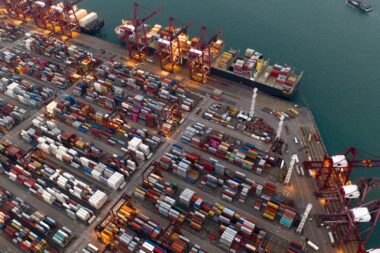Transport Economics and Its Influence on International Trade
Transport economics is a vital field that deals with the analysis of transport systems’ efficiency and their impact on trade and economy. This discipline examines how transport affects the movement of goods and services across borders. It is crucial for understanding how international trade functions economically and can significantly influence various sectors. Transport economics considers aspects such as cost, logistics, and infrastructure. The overall efficiency of transportation networks can increase trade competitiveness among nations and stimulate economic growth. By examining different modes of transport including roads, railways, and shipping, economists can identify advantages and drawbacks in their effectiveness. Investments in transportation infrastructure can yield substantial returns by facilitating smoother trade routes and lowering costs. Hence, countries that develop robust transport systems often enhance their global trade position. Subsequently, this development can lead to increased foreign investment, job creation, and technological advancements. Understanding these dynamics is vital for policymakers aiming to foster economic growth. A well-developed transport system ultimately works as the backbone of enhanced international commerce and contributes to the prosperity of nations.
Transport economics also plays a crucial role in addressing various environmental concerns associated with modern transportation systems. As the global economy continues to grow, so does the demand for efficient transport modes. However, this demand often conflicts with environmental sustainability. Transport systems are significant sources of greenhouse gas emissions, consuming energy and contributing to climate change. To mitigate these impacts, economists and policymakers explore sustainable transport alternatives that reduce emissions and enhance efficiency. This includes investing in renewable energy sources for transport, developing electric vehicles, and improving public transportation systems. Economies around the world are evaluating policies that encourage clean transport options while balancing trade needs. For instance, implementing regulations to incentivize the use of less polluting transport modes can yield both environmental and economic benefits. Furthermore, advancements in technology hold promise for greener transport solutions, driving a shift towards sustainable practices. By intertwining transport economics with environmental policies, countries can promote trade while ensuring that their ecological footprint is minimized. This relationship demonstrates the significance of making informed decisions in transport planning to support both trade and environmental sustainability.
The Role of Infrastructure in Trade
Infrastructure investment is a critical component of transport economics, directly affecting international trade. Countries investing in their infrastructure often experience improved logistics efficiency, which is essential for global market competitiveness. Efficient transport routes reduce delivery times, lower shipping costs, and enhance overall supply chain effectiveness. As nations aim to participate more actively in international trade, the need for quality infrastructure becomes evident. Improvements in ports, roads, and rail networks facilitate smoother transit for products across borders. Consequently, this results in reduced transaction costs and more reliable supply chains. Economies with robust infrastructure attract foreign investment and contribute to a favorable business environment. Moreover, infrastructure development creates jobs and promotes urbanization, further strengthening the economy. An updated infrastructure also enhances connectivity with trade partners, fostering better trading relationships. Thus, the interplay between transport infrastructure and trade underlines the necessity for strategic investments in transport economics. This investment pays off, leading to improved trade performance, better market access for exporters, and increased economic activities. Therefore, governments must prioritize infrastructure development to fully harness the benefits of international trade.
Another key aspect of transport economics is the influence of technology on trade facilitation. Technological advancements have revolutionized transport logistics, providing innovative solutions that streamline operations and enhance trade efficiency. Technologies such as GPS, blockchain, and automated systems have transformed how goods move across borders. These technologies improve tracking capabilities, reduce fraud risks, ensure timely deliveries, and enhance overall supply chain visibility. Embracing technology in transport economics aids in data collection and analysis, leading to better decision-making for market players. Furthermore, real-time data sharing facilitates communication among stakeholders, reducing delays and generating more reliable transit times. Countries adopting advanced technologies generally see improved competitiveness in international trade. As customs procedures become more efficient and transparent, companies can move their products more swiftly across borders, fostering trade growth. Moreover, the integration of digital platforms enhances accessibility, allowing smaller businesses to engage in international trade. This democratization of trade opportunities, driven by technology, is reshaping global commerce. Thus, understanding technology’s role in transport economics is paramount for companies aiming to adapt and thrive in the evolving marketplace.
Challenges Facing Transport Economics
Despite its vital importance, transport economics faces several challenges that can impede its effectiveness in enhancing international trade. Issues such as congestion, regulatory barriers, and inadequate infrastructure can undermine trade efficiency. Urban areas often encounter severe traffic congestion, which delays transport and increases costs for businesses. Addressing these challenges requires collaborative efforts from governments and industry stakeholders to develop innovative solutions. Furthermore, regulatory hurdles can complicate cross-border trading, with varying customs procedures and compliance requirements leading to additional delays. Streamlining these regulations can help accelerate trade processes and improve competitiveness. Additionally, funding remains a persistent challenge for many nations, as developing robust infrastructure requires substantial financial investments. Limited budgets may restrict the ability to enhance transport networks, affecting trade outcomes. Climate-related challenges also present obstacles to transportation systems, as extreme weather events can disrupt logistics. Transport economics must thus evolve to tackle these challenges effectively. By identifying and addressing inefficiencies and barriers in transport systems, countries can foster an environment conducive to international trade and create resilient economies that withstand global pressures.
Consumer behavior is another critical aspect that transport economics must address as it influences international trade. The rise of e-commerce has significantly transformed consumer expectations for speed and transparency in shipping. Customers now demand rapid deliveries, prompting businesses to revise their logistics strategies. This shift toward faster shipping timelines has significant implications for transport economics. Companies must optimize their supply chains and invest in sophisticated logistics solutions to meet these growing expectations. Additionally, the global pandemic accelerated changes in consumer behavior, with many people opting for online shopping, thus increasing the volume of goods moving across borders. Understanding consumer preferences and integrating them into transport strategies is essential for ensuring efficient trade operations. Furthermore, businesses increasingly rely on data analytics to anticipate customer demands, further driving the need for agile transport solutions. As a result, transport economics must adapt to the shifting landscape shaped by consumer behavior, ensuring that companies can navigate these changes effectively. This responsiveness not only enhances international trade but also fosters customer satisfaction, which is crucial for long-term business success and sustainability.
Conclusion: The Future of Transport Economics
In conclusion, transport economics represents a dynamic and integral part of understanding international trade. Its influence extends beyond merely facilitating the movement of goods to encompass economic growth, sustainability, and technological advancements. As the world continuously evolves, so must the approaches within transport economics to address emerging challenges and opportunities. Investment in infrastructure, adaptation of new technologies, and aligning with consumer behaviors are paramount for future trade success. Moreover, policymakers must focus on creating supportive frameworks that encourage sustainable practices while fostering trade. With ongoing global shifts such as climate change, urbanization, and digitalization, the role of transport economics will remain crucial. Strengthening transport systems can lead to enhanced logistics operations, facilitating cross-border trade and economic development. Ultimately, a resilient transport economy will enhance a nation’s competitiveness, creating avenues for growth and prosperity. By fostering an efficient transport landscape, countries will be better positioned to navigate the complexities of global trade effectively. As challenges persist, continuous innovation and strategic planning in transport economics will be key to shaping the future of international trade.
In this context, understanding transport economics can facilitate better international trade practices that ultimately benefit global markets. This underscores the necessity for interdisciplinary approaches that incorporate technology, infrastructure development, and consumer behavior to create efficient trade systems. By fostering collaboration among governments, businesses, and communities, the future of transport economics can be robust and responsive to the intricacies of global commerce.





